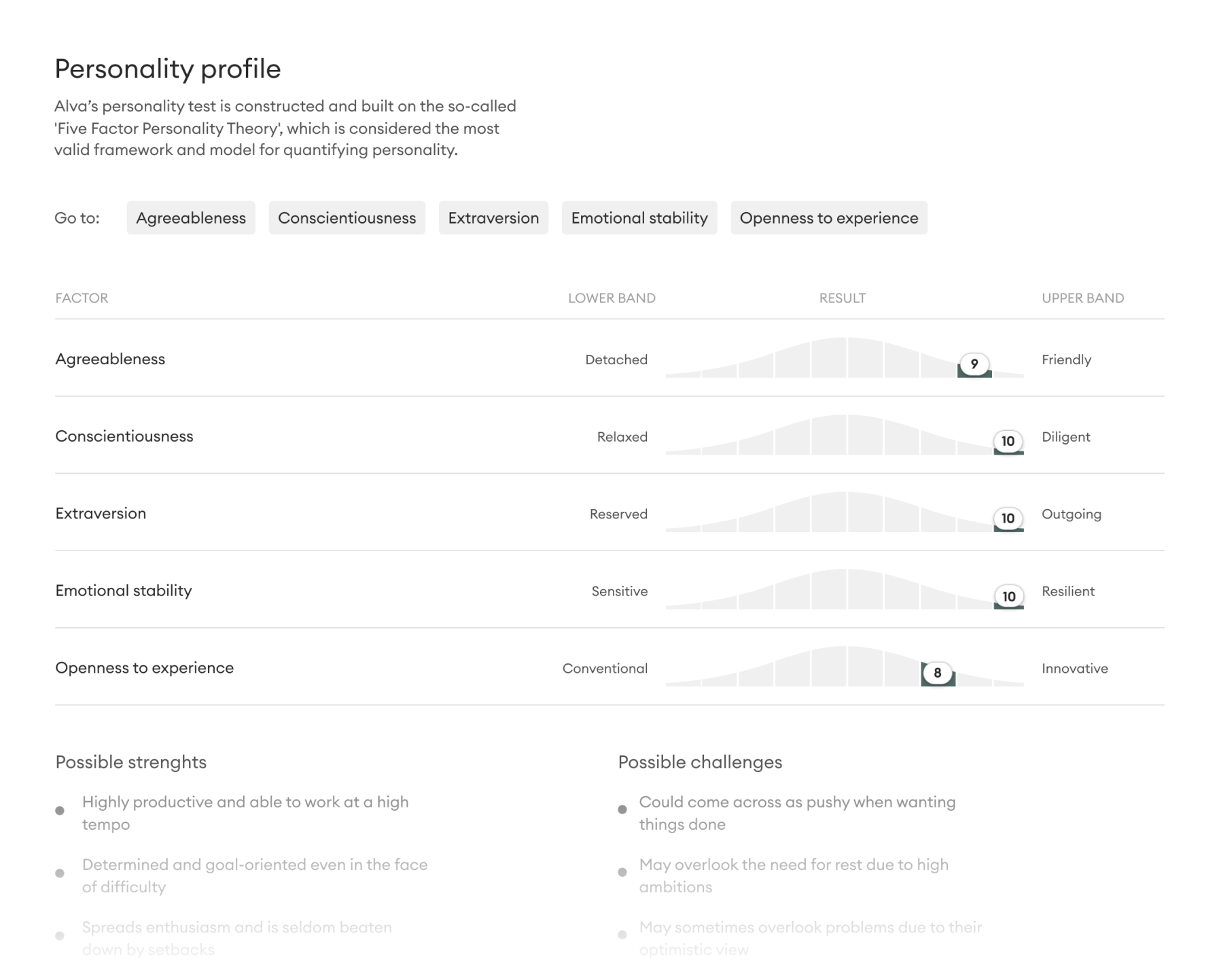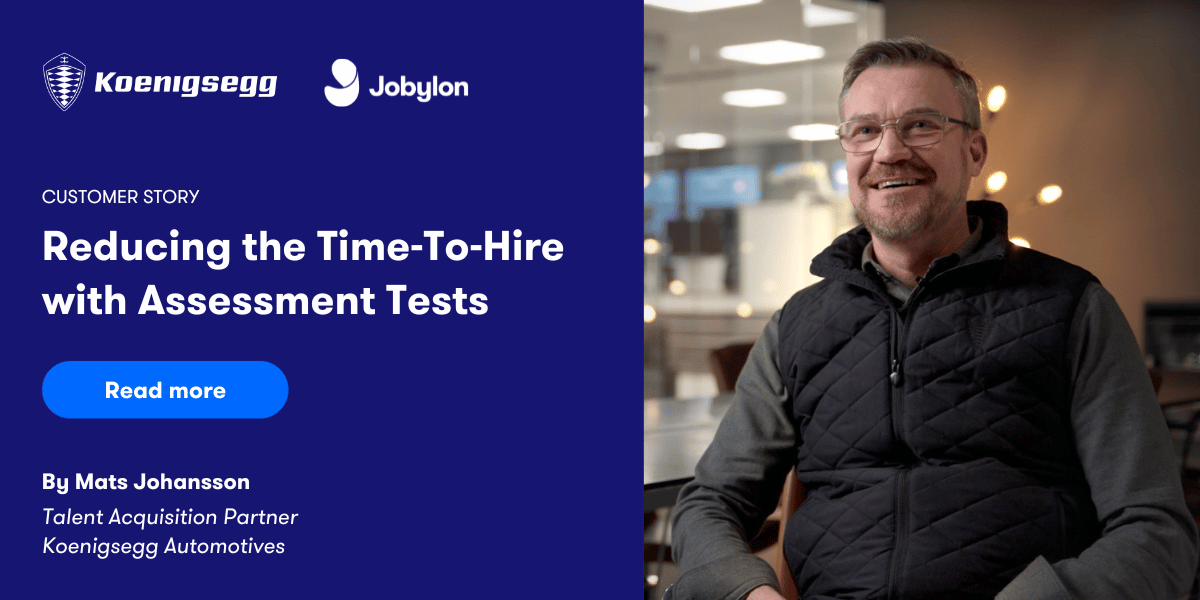Acquiring the ideal candidate is often a complex endeavor, bussiness-critical for organisations seeking robust growth and stability. In the current job market landscape, marked by fierce competition, traditional hiring methods like interviews and background checks alone no longer suffice. This underscores the significance of incorporating modern role-based assessments.
To assist you in consistently selecting the most suitable candidates, we have developed this guide. It offers a comprehensive array of modern assessment strategies and tools to seamlessly incorporate effective and pragmatic recruiting assessment tests into your recruitment framework.

What is a Talent Assessment?
A talent assessment is a way used by organisations to evaluate the suitability of candidates for a specific role. It typically includes various tests and assessments designed to measure a candidate’s skills, knowledge, personality, and other attributes with the job requirements. This method of evaluation goes beyond what is stated on resumes and explored in interviews, offering a more holistic view of candidate suitability. It forms a critical component in modern recruitment strategies, allowing hiring teams to make more informed and objective decisions
Why assessment tests matter in recruitment
At the heart of any successful hiring process is an understanding of the candidate — beyond just what's listed on their resume. Assessments offer a nuanced view of your candidates’ skills, knowledge, and abilities, which are critical factors in predicting their suitability and potential for growth within your organisation.
Objectivity & Fairness
One of the strongest arguments for using recruitment assessment tests is the objectivity they bring to the recruitment process. Unlike interviews, which are often subject to unconscious biases, assessment tests provide standardized criteria that put all candidates on an even playing field.
Efficiency
Time is money, and sifting through a large number of candidates manually can be resource-intensive. Talent assessment tests help you quickly filter out those who don't meet your standards, enabling you to focus your energy and resources on the most promising candidates.
Future Performance Insights
Beyond the immediate requirements of the role, recruitment assessments can give you a glimpse into a candidate’s potential for future contributions and growth within the organisation.
Better Matchmaking
Matching a candidate's skills and personality with the demands and culture of your organisation is crucial. Recruitment assessments facilitate this compatibility, ensuring that you make hires that benefit both the employee and the business in the long term.
Types of Talent Assessment Tests
The types of tests can vary for each purpose and service multiple outcomes. To make you choose the right tests, we will go through the most common test with our recommendation for uses cases and possible examples.
Cognitive Ability Tests
Cognitive Ability Tests are imperative for assessing a candidate's critical thinking, problem-solving, and reasoning skills. They are instrumental for roles that necessitate complex decision-making and efficient analysis of information, such as positions in financial analysis or project management. These tests help you to ensure that candidates can swiftly and accurately comprehend and apply information, proving especially beneficial for roles demanding analytical prowess. They are commonly used in various contexts, including employment and education. Here are examples and use cases for Cognitive Ability Tests:
Examples of Cognitive Ability Tests:
- Numerical Reasoning Tests: These assess a person's ability to work with numbers, solve mathematical problems, and understand numerical data.
- Verbal Reasoning Tests: These evaluate language comprehension, vocabulary, and verbal reasoning skills.
- Abstract Reasoning Tests: These assess a person's ability to recognize patterns, solve abstract problems, and think critically.
- Logical Reasoning Tests: These measure a candidate's logical thinking and deductive reasoning abilities.
Let us have a look at where you can typically find practical cases for these types of tests.
Use Cases for Cognitive Ability Tests:
- Employee Selection: Employers use Cognitive Ability Tests as part of the hiring process to assess candidates' problem-solving, critical thinking, and analytical skills. It helps identify candidates who are a good fit for roles that require strong cognitive abilities.
- Education: Educational institutions may use these tests for admissions, scholarship eligibility, or to identify students who may need additional support in specific subjects.
- Career Development: Individuals can take these tests to understand their cognitive strengths and weaknesses, which can guide their career choices and development.
- Training and Development: Cognitive Ability Tests can be used to assess the effectiveness of training programs by measuring participants' cognitive improvements before and after training.
- Research: Cognitive psychologists and researchers use these tests to study cognitive processes and explore the relationship between cognitive abilities and other factors like age or health.
Cognitive Ability Tests are versatile tools that help evaluate and leverage cognitive skills in various fields, making them valuable in decision-making processes and personal development.
Personality Tests
Personality Tests offer an in-depth analysis of a candidate's behavioral attributes. They are essential for roles that necessitate strong interpersonal skills, teamwork, customer interaction, or leadership qualities, like those in customer service or managerial positions. These assessments are critical in determining how well a candidate’s traits align with the organisational culture and role requirements, facilitating a harmonious integration within the team. They serve various purposes in both personal and professional contexts. Here are examples and use cases for personality tests:
Examples of Personality Tests:
- Myers-Briggs Type Indicator (MBTI): This test categorizes individuals into one of 16 personality types based on preferences related to extraversion vs. introversion, sensing vs. intuition, thinking vs. feeling, and judging vs. perceiving.
- DiSC Personality Test: DiSC measures personality traits in four main categories: Dominance, Influence, Steadiness, and Conscientiousness. It's often used for team building and personal development.
- Enneagram: This test categorizes individuals into one of nine personality types, each associated with distinct motivations, fears, and behavior.
- Big Five Personality Test: Also known as the Five-Factor Model, this test assesses personality based on five traits: Openness, Conscientiousness, Extraversion, Agreeableness, and Neuroticism. A modern vendor Alvalabs assesses these traits and easily make them visible for you for quantifying the personality.

Use Cases for Personality Tests:
- Employee Recruitment: Employers use personality tests to assess candidates' suitability for specific roles and to ensure a good cultural fit within the organisation. For example, the DiSC test can help identify candidates with communication styles that align with the job requirements.
- Team Building: Personality tests are employed to build more effective and harmonious teams. By understanding team members' personality traits, leaders can allocate tasks and responsibilities accordingly, enhancing collaboration.
- Personal Development: Individuals use personality tests for self-awareness and personal growth. Understanding one's own strengths and weaknesses can guide career choices and self-improvement efforts.
- Conflict Resolution: In both personal and professional settings, personality tests can help resolve conflicts by providing insights into the underlying reasons for disagreements and differences in communication styles.
- Leadership Development: Organisations use personality assessments to identify high-potential leaders and provide tailored development plans to enhance their leadership skills.
Personality tests can be applied in various ways to improve personal and professional interactions, team dynamics, and decision-making processes. If you want to dive deeper into how assessments can be integrated into your processes and the value they provide for your organisation, we recommend a great read from a customer case with Koenigsegg Automotive, Alva and Jobylon.
Skills Assessment
Skills Assessments are specialized tests designed to measure a candidate’s proficiency in the specific abilities a role demands. These are crucial for a wide range of roles from coding to copywriting and are particularly valuable for technical positions like software development. They ensure that candidates possess the practical knowledge and skills needed for immediate contribution and effective role alignment.
These assessments are used for various purposes, including hiring, training, and performance evaluation. Here is an overview of skills assessments, their examples, and use cases:
Examples of Skills Assessment:
- Technical Skills Assessment: This evaluates an individual's technical abilities in fields such as programming, data analysis, or IT support. Coding tests, data analysis challenges, and troubleshooting scenarios are common examples.
- Language Proficiency Tests: Language skills are assessed to determine fluency and proficiency in speaking, writing, and comprehension. These assessments are vital for roles that require communication in multiple languages.
- Digital Literacy Tests: As technology becomes increasingly important in the workplace, assessing digital literacy skills is essential. These tests gauge an individual's ability to use software, navigate digital tools, and adapt to new technologies.
- Time Management Assessments: These assessments measure an individual's ability to prioritize tasks, meet deadlines, and manage their time effectively. Time management skills are critical in various professions.
Use Cases for Skills Assessment:
- Hiring and Recruitment: Skills assessments are commonly used during the hiring process to ensure that candidates possess the required skills for the job. They provide objective data to make informed hiring decisions.
- Employee Training and Development: Skills assessments identify gaps in employees' skills and knowledge, enabling organisations to design targeted training programs. This promotes continuous learning and skill enhancement.
- Performance Evaluation: Employers use skills assessments to evaluate employee performance objectively. Results can inform promotion decisions, identify areas for improvement, and set performance goals.
- Career Development: Individuals can use skills assessments to identify their strengths and weaknesses, helping them make informed career choices and develop a roadmap for skill improvement.
- Enhancing Profile Visibility: On platforms like LinkedIn, skill assessment tests allow professionals to validate their skills, enhancing their profile credibility and visibility to potential employers or clients.
Situational Judgement Tests
Situational Judgement Tests (SJTs) provide insights into a candidate's decision-making and problem-solving skills by presenting them with hypothetical, job-related situations. These assessments are invaluable for managerial roles, enabling organisations to discern candidates’ potential reactions and resolutions to conflicts and their ability to align with the company's values and objectives.
Overview of Situational Judgment Tests:
- Scenario-Based Assessment: SJTs present candidates with realistic workplace scenarios, often in the form of written descriptions or video vignettes.
- Multiple-Choice Format: Candidates are typically given several response options for each scenario and must select the one they believe is the most effective or appropriate.
- Assessing Soft Skills: SJTs focus on evaluating soft skills such as problem-solving, interpersonal skills, conflict resolution, and ethical decision-making.
Use Cases of Situational Judgment Tests:
- Employee Selection: Employers use SJTs as part of the hiring process to assess candidates' suitability for specific job roles. By presenting scenarios related to the position, employers can gauge how candidates might handle real-life challenges on the job.
- Training and Development: SJTs are valuable for identifying areas where employees may need additional training or development. By analyzing their responses, organisations can tailor training programs to address specific skill gaps.
- Performance Appraisal: Some organisations use SJTs as part of performance evaluations to assess employees' problem-solving and decision-making abilities in the context of their roles.
- Succession Planning: SJTs can help identify high-potential employees who demonstrate strong decision-making skills and are well-suited for leadership positions in the future.
- Research and Validation: Organisations may use SJTs to conduct research on the effectiveness of different situational scenarios in predicting job performance and to validate their use in employee selection.
In summary, SJTs are a valuable tool for assessing individuals' ability to make sound decisions in work-related situations. They are used in multiple HR and talent management contexts, including employee selection, training, and performance evaluation, to ensure that individuals are well-suited for their roles and can navigate complex workplace scenarios effectively.
All these refined assessment tests offer a multifaceted approach to evaluating candidates, ensuring a thorough understanding of their skills, personalities, and potential alignment with organisational values and roles, thereby streamlining the recruitment process.
Benefits of Using Talent Assessment Tests
Letting aside the different types of tests, their use cases and common roles to apply them for, let us talk about the core benefits and strategies behind them.
1. Data-Driven Decisions:
In the world of recruitment, intuition and gut feelings have traditionally played a significant role in hiring decisions. However, Recruitment Assessment Tests represent a paradigm shift towards more evidence-based and logical decision-making. These tests yield quantifiable data, providing a more solid foundation upon which to assess a candidate’s suitability for a role. By relying on concrete and objective information, hiring managers can make more informed and reliable decisions, reducing the scope of uncertainty and improving the overall effectiveness of the recruitment process. This evidence-based approach ensures that every hiring decision is rational, balanced, and justified, eliminating the risk associated with subjective judgments.
2. Reduced Turnover:
The repercussions of a wrong hire can be profound, impacting the morale of the existing team and consuming additional time and resources to rectify. Recruitment Assessment Tests mitigate this risk by facilitating more informed hiring choices. By ensuring a candidate’s skills, personality, and values are in sync with the organisational culture and role requirements, the probability of employee dissatisfaction and subsequent turnover diminishes significantly. The alignment fosters a conducive work environment, promotes employee satisfaction, and enhances retention, thereby saving the organisation valuable time and resources in the long run.
3. Optimized Diversity Recruitment:
One of the more innovative benefits of Recruitment Assessment Tests is their ability to foster diversity and inclusion within the workplace. These tests are meticulously designed to be neutral and unbiased, providing an equal platform for all candidates, irrespective of their background. By minimizing subjective biases and focusing on the competencies and skills required for the job, organisations can ensure a fair and equitable hiring process. This inclusive approach not only enriches the organisational culture with diverse perspectives but also enhances creativity and problem-solving, contributing to overall business success.
4. Streamlined Candidate Comparison:
Often, recruiters find themselves in predicaments, having to choose between candidates with seemingly similar qualifications and experiences. In such scenarios, Recruitment Assessment Tests serve as a differential tool, providing in-depth insights and metrics that go beyond resumes. These additional layers of information facilitate a more comprehensive and fair comparison between candidates, focusing on their abilities, potential, and fit within the organisation. The resultant clarity and transparency enable hiring managers to discern subtle distinctions between candidates, aiding in the selection of the most suitable individual for the role.
5. Volume hiring:
Volume-based hiring often involves a high number of applicants. Assessment tests cut through the noise and act as initial screening tools to filter out candidates who do not meet the basic job requirements. This reduces the manual effort required to review resumes and applications. Talent acquisition teams will be able to efficiently narrow down candidate shortlists so they can spend more time on high quality candidates impacting a reduced time-to-hire.
By making more informed hiring choices, you are likely to see a decrease in employee turnover, saving both time and resources in the long run.
Seamless ATS Integrations
The worlds best assessment tests will not help if you can not use them to test on a larger scale of candidates. If you are getting 350 applications to an vacancy, how would you ever be able to optimise quality among quantity and test a larger pool of candidates? The answer is in a seamless integration with your applicant tracking system (ATS) that enable you to start the tests without leaving the ATS and seeing the results on the candidate's profile page connected with possible automations such as moving the candidate to a different stage or triggering a communication flow for rejection.
We at Jobylon are leveraging strategic partnerships with industry-leading assessment partners and seamlessly incorporating various assessment tests into the recruitment workflow. This allows organisations to choose the perfect assessment partner in their market for the specific purpose of refining recruitment strategies and enabling an in-depth view of candidates. On top of that, organisations can focus solely on identifying and acquiring the right talent.
A prime example of the efficacy of such integrations is Koenigsegg’s substantial decrease in Time-To-Hire from 2 months to 25 days, which was accomplished through the collaborative efforts between Jobylon and assessment provider Alva Labs.
Final thoughts
Integrating recruiting assessment tests into your hiring process offers a more comprehensive, objective, and efficient way to evaluate candidates. If you make your vision to hire the right person every time, assessment tests will help you to succeed on your journey.




